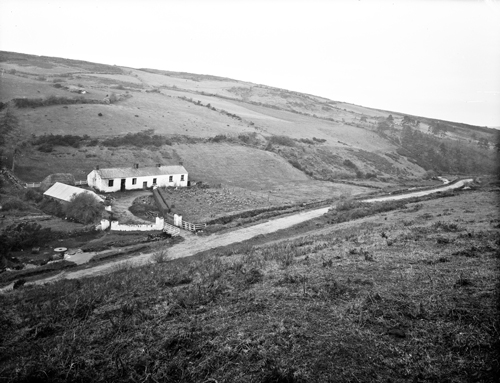New Land Bill to create a “Nation of Peasant Proprietors”
London, 24 July 1923 - New Land legislation will help create a ‘nation of peasant proprietors’, the Dáil has been informed.
The Bill, which was accepted by all parties and which passed through the report stage in the Dáil yesterday, has been hailed by Mr. Darrell Figgis TD as both a ‘very great achievement’ and a ‘very great landmark’, not least because it was built on the principle of establishing a ‘nation of peasant proprietors.’
Mr. Patrick Hogan, the Minister for Agriculture, said that the Dáil recognised the rights of property and it was for that reason it was preparing to pay a ‘certain amount’ for the land that it was proposing to confiscate.
The Irish Bill has also been discussed extensively in the UK’s House of Lords, where the Earl of Midleton has stressed the obligation of the British government to ensure that pledges as regards land purchase and compensation given both before and subsequent to the signing of the Irish Treaty in 1921 are to be honoured.
An old recording of Terence Dooley discussing Landlords, the Land Acts and Economics, courtesy of Irish Heritage Trust
The Earl of Midleton asked that a capital sum of £25,000,000 (or £1,000,000 a year) be provided for Irish landlords, who, he argued, will suffer serious loss if the Irish Free State Land Bill is passed in its present form.
The Duke of Devonshire, Secretary of State for the Colonies,
admitted that the Irish Land Bill expected to pass through
the Irish Parliament that very day will ‘affect a great many
landlords very severely’
and he hopes that the British Government will consider ‘the
position of those who will be affected by this legislation, and
they will very fully bear in mind the debate which has taken place
in the House this afternoon.’
Interestingly, in the course of the debate, the House of Lords covered large areas in the Anglo-Irish relationship with Lord Birkenhead, a signatory of the Anglo-Irish Treaty, defending that agreement against critics in Britain who denounced it as a ‘ghastly surrender.’ According to Lord Birkenhead there was little alternative given the scale of the opposition that the British government would face and the need to potentially resource a massive army presence in Ireland.
‘The dimensions of that struggle may be measured by the fact that the Irish Free State Government, at its charge and not at our charge, has maintained an Army in the field of 50,000 men’, Lord Birkenhead noted. ‘The numbers of the troops by whom they have been opposed may be measured by the circumstance that there are to-day 11,000 prisoners in Irish gaols. Multiply that number by three—a moderate multiplication—and you will have a total of 33,000 Irish rebels in the field, not against any British power, who were even in the field after the Treaty was signed against the armed forces of the Free State. Add those to the 50,000 Free State troops and you get at least 80,000 men.’
He continued:
‘You must not imagine that the numbers required when' Irishmen are fighting Irishmen are a criterion of the number of troops that would have to be put in the field by the British Government fighting Irishmen. It is reasonable to assume that had that settlement not been made 100,000 men in Ireland would have resisted by force of arms the attempt of this country to impose the only system which was alternative to the settlement that was made. I venture to say that circumstance proves to demonstration how right the War Office were when they advised the Government, of which I was a member, that if we were to undertake this burden we must immediately raise as troops available for this purpose, and for this purpose alone, 200,000 men. Indeed, I think that calculation was a moderate one, if there were 100,000 men hiding when they chose in the mountains of Ireland, succoured by the support and sympathy of a population friendly to them and hostile to us. It must be obvious that the computation of 200,000 men asked for was therefore not excessive.’
[Editor's note: This is an article from Century Ireland, a fortnightly online newspaper, written from the perspective of a journalist 100 years ago, based on news reports of the time.]





















